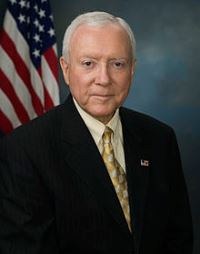Doctors, lawmakers and the pharma industry are rolling out the cannons against the Centers for Medicare and Medicaid Services (CMS) over a proposal that would reduce physicians' payments for pricey cancer drugs. The backlash comes a day after CMS unveiled the plan, and it could portend a messy battle as industry groups and healthcare providers fight the proposed changes.
Biotech's largest trade association, the Biotechnology Innovation Organization (BIO) says it's "gravely concerned" about the Medicare Part B proposal. Most of the pushback centers on cuts to physician and clinic reimbursements, which CMS says are designed to quash incentives to use pricier meds.
Normally, doctors get reimbursed the average sale price of a drug plus a 6% premium, which some say encourages them to choose expensive therapies. The new plan would lower the premium to 2.5% and add a $16.80 fee. The proposal is now in a 60-day comment period.
Cancer doctors and lawmakers are staging a vocal opposition. Some physicians said the proposal should be withdrawn because independent oncology practices will fold. And cancer centers and oncologists said curbing rising drug costs shouldn't be handled by reducing their payments.
"It is an understatement to say that this latest CMS initiative is misguided and a perilous cancer care policy," Ted Okon, executive director of the nonprofit Community Oncology Alliance (COA), said in a statement.
"It will only serve to accelerate the consolidation of cancer care into the more expensive hospital setting and undermine the physician-patient collaboration on the treatment of cancer. I thought we were at war on cancer, not cancer care," he said.
 |
| U.S. Sen. Orrin Hatch (R-UT) |
Republican lawmakers are lodging their complaints, too. "Yesterday's announcement marks another troubling example of unelected bureaucrats making decisions behind closed doors that impact the American people and their healthcare," Sen. Orrin Hatch (R-UT) and Reps. Kevin Brady (R-TX) and Fred Upton (R-MI) said in a statement.
The CMS is standing by its proposal. The changes would pay doctors for the cost of every drug, unlike the current system which penalizes doctors if the right drug is cheaper, administration officials said. Patients will not have any trouble accessing the meds and might actually get better care under the new system, the agency says.
But the changes would likely affect drugmakers making pricey meds, SunTrust analyst Yatin Suneja said in a note to clients. The CMS' move "could reduce incentives for physicians to prescribe expensive medications such as oncology drugs and biologic therapeutics," Suneja said, especially when similar, cheaper meds are available.
Case in point? Regeneron's ($REGN) retinal disease drug Eylea. The med "is likely to be most at risk from this proposed rule change" as it faces competition from Roche's ($RHHBY) cheaper alternative Avastin, Suneja said.
- get the BIO statement
- here's the COA statement
- read the release from Sen. Hatch and Reps. Brady and Upton
Special Reports: Top 10 most expensive drugs of 2013 | Top 10 best-selling cancer drugs of 2013